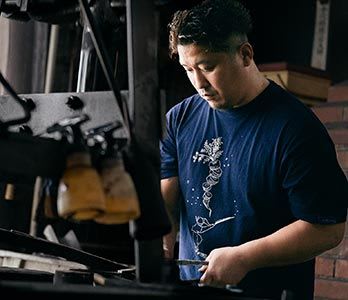In Japan, the traditional coffee shop, known as a kissaten, has an important role to play. It transcends barista craftsmanship to become a vital centrepiece of the neighbourhood through a tranquil atmosphere and hand-brewed coffee.
Words Shogo Hagiwara / Images Tajimaya and Kurasu
Japanese kissatens are much more than simple. traditional Japanese-style coffeehouses. Just as Mazda continues to elevate and energise its drivers, so too do the kissatens, each acting as cornerstones for local communities through omotenashi — an expression of hospitality and respect – and devoting time to their loyal customers.
The global coffeehouse culture we know today traces its roots back to the early 16th century, in the Middle East and Europe. During this time, everyone from intellectuals to businesspeople, politicians and locals would meet over cups of coffee. However, it wasn’t until the late 19th century that Japan – thousands of kilometres away – would embrace this culture.





















